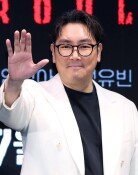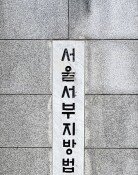[Opinion] The Ruler Is the Light of the People
[Opinion] The Ruler Is the Light of the People
Posted January. 21, 2002 09:40,
The historical figures featured in current TV dramas like Wonggun, Queen Myongsung, and Queen Mungjung are very popular these days. All of these individuals set the course of their era. May be this is why their popularity is so high. This indicates the state of our people`s feelings and thoughts about their national leaders. In the case of our nation`s leaders, however, the popularity has hit bottom. Why is this the case?
Were the rulers of the past, whom these historical dramas portray, as unpopular as our present leaders today in their own time? Not necessarily.
Although Queen Munjung is criticized for treating Emperor Myongjong as a mother treats a child, everyone praises Wonggun for putting into practice his policy of transparent tax collection. He practiced what we in the East call `politics based on virtue`.
Confucius` words capture the essence of this `virtuous politics` - "If you guide the people to the rule of law and turn customs into laws, the people may be able to escape justice but rid eliminate their sense of shame." In other words, enforcing the letter of the law leads to overlooking many of the actual violations of virtue not included in the legal regulations.
Mencius created a theory monarchic politics which added on `justice,` the understanding of shame, to `virtue`.
Chu His contributed his own treatise on justice where he argued that every work requires moral uprightness in addition to the saying, "Only the one who embodies virtue and justice can rule another."
A high state official must first of all be a `person of maturity`. One`s age nor rank does not necessarily mean that one is such a person. A real person of maturity embodies the virtues of the superior man.
A greater person of maturity manifests the wisdom of a sage by explaining how the world runs.
Someone who is even of greater maturity than this correctly explains the people`s experience and reveals the Heavenly will.
An episode from the 9th Choson monarch, King Seongjong`s life tells well the story of a true person of maturity.
When Seongjong fell sick from illness, his mother queen prepared for a Kut in the compounds of the Confucian academy and prayed for healing. A scholar who was studying at the academy brought a mob and chased away the shaman by beating her. The queen being greatly angered told the king after her son had recovered. When the king had heard of what the scholar had done, he gave him a special wine as a gift rather than punishing him. Who is the real person of maturity here? The real person of maturity is not the queen in the palace, but the lowly Confucian scholar Yi Mok.
Tasan Chung Yak-Yong wrote the following about his older brother, Chung Yak-Chun: "He was friendly and spent time with vulgar fishermen and lowly commoners, and did not act arrogantly. The islanders, in turn, were very gladdened by this and asked that he stay at their respective homes."
What about in the case not of an official but of a ruler? There is one passage in the Choson Royal Records which judges the kings in this way: "Although the King (is gracious only to his cohorts) but do not actually provide anything to the common subjects, the people still grieve the death of the King." The judgment is that this king may have been a ruler, but he was not a person of maturity.
On the other hand, Chung-Jo who was widely acknowledged as a person of maturity is recorded as `sage among sages` because he liked and put into practice the concept that `the ruler and the people are of one blood.`
In his last days, he began to say that "the ruler is the moon that illuminates ten thousand rivers." His was a political theory that espoused the concept of the ruler as a father who, like the moon, shines his light on every stream, and as a teacher who sees all persons as sharing the same bloodline. Chung Yak-Yong, who enjoyed Chung-Jo`s deep friendship, did not write the words, "the ruler emerges to the top by coming from below` by coincidence."
Presently in our society, there is no politics of unity, but only `rulers` whose sole method is to impose their will on others. This is vulgar politics that belongs to the colonial era.
Politics may exclude virtue and justice, and amount to little more than sheer power. Yet, in the tradition of virtuous politics, which upholds virtue, justice, moral duty, there still remains important virtues of value, power of influence, communitarian consciousness, and peaceable intentions.
Politics in a fast changing world requires the ability to go beyond the scope one era`s mindset and discern reality.
There is, then, a need for us to recover the `politics of the person of maturity` from the tradition of virtuous politics, and to apply it in the present context.
Park Kwang-Yong (Catholic University, Professor of Korean History)







